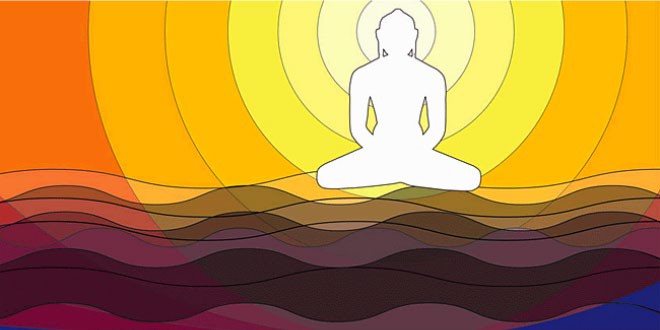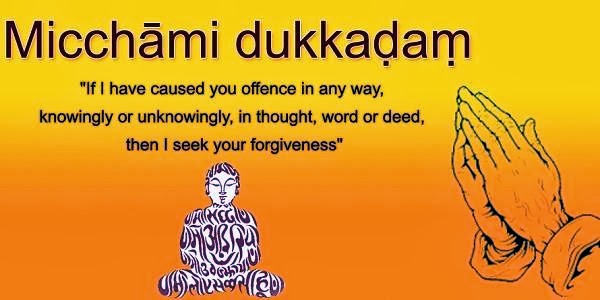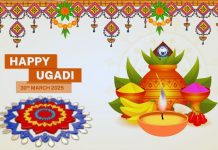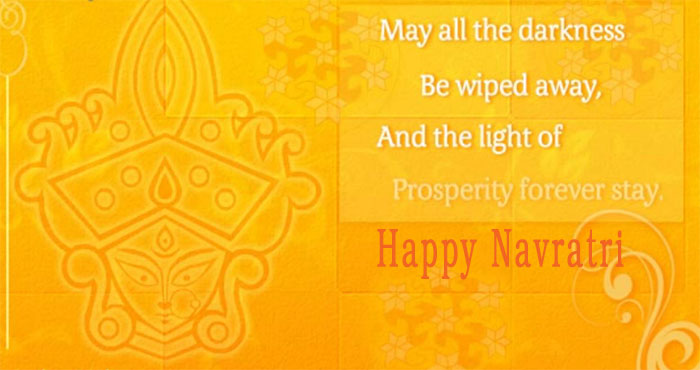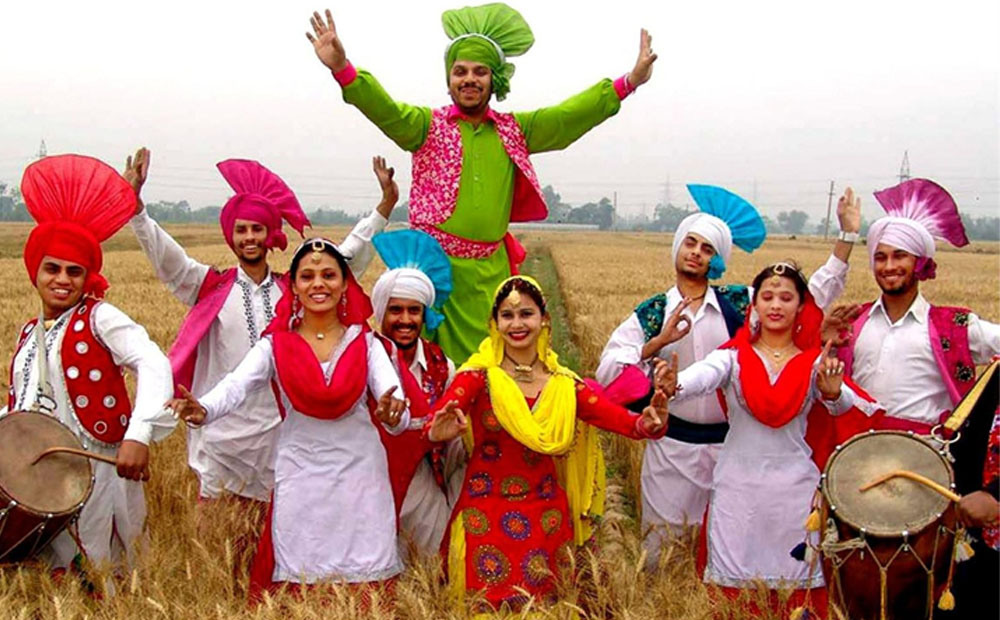The Jain festival of Paryushan (Pari + upshamana = upshamana means to suppress, to suppress our passions (kashayas – anger, ego, deceit and greed) from all directions, is celebrated in the month of August or September. It is celebrated to purify our soul by staying closer to our own soul, to introspect, to ask for forgiveness for the mistakes that we have committed and take vows to minimize our faults in the future.
The phrase Michchāmi Dukkaḍaṃ is also found in the Airyapathiki Sutra. It literally means — may all the evil that has been done be fruitless, and comes from the Prakrit language, used abundantly in Jainism.
Full Michchhami Dukkadam Prayer
Khamemi Savve Jiva
I forgive all living beings.
Savve Jiva Khamantu me
May all souls forgive me,
Mitti me Savva Bhooesu
I am on friendly terms with all,
Veram Majjham Na Kenai
I have no animosity toward anybody.
Michchhami Dukkadam
May my misdeeds be undone
The process of shedding our karmas really begins by asking for forgiveness with true feelings, and to take a vows not to repeat mistakes. The quality of the forgiveness requires humility (vinay – absence of ego) and suppression of anger.
Paryushana means “abiding, coming together”. The duration of Paryusana is for eight days for Swetambar Jains and ten days for Jains belonging to the Digambara sect.
This annual holy time for Jains is reserved for prayers, meditation, introspection, penance, and fasting. Even the wandering monks temporarily abandon their wandering life and settle down amidst laymen, giving discourses and organizing scriptural recitations.
On the last day, known as Samvatsari, many also observe a unique custom where they ask every individual they may have offended during the year for forgiveness. Old quarrels are forgotten and friendships and relationships renewed as they fold their hands and say “Micchamidukkadam” or “Please forgive me.”
“If I have caused you offence in any way, knowingly or unknowingly, in thought, word or deed, then I seek your forgiveness”

